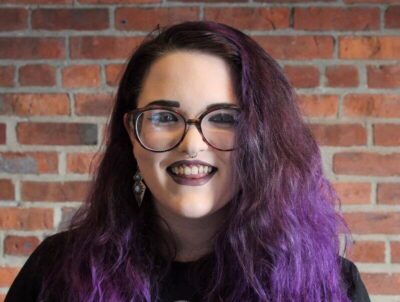
Remember that phrase, “sharing is caring”? We used to use this expression to encourage children to maybe share their toys or asking those with more to give to those with less. Now, this term resonates with me as I reflect on my own experiences with telling my story, with receiving others’ stories: sharing with someone as an indication of care.
When I worked with Youth Voice Project, we hosted a series of “town halls” with young adults across the city, in schools, churches, community centers, etc. We asked a variety of questions about what young people saw as challenges facing their schools, their neighborhoods, the country at large. What we heard over and over again was a deep desire for more spaces to have these conversations, a crying out for young people to be involved in discussions that deeply impact them, and for adults to take them seriously. Our team took that cue and began developing a series of inter-generational conversations, a step in the direction of bridging the age gap to address community issues and develop solutions collaboratively.
We started each of these inter-generational conversations by asking participants to name the biases they held toward one another, or what stereotypes they felt were placed on them. It is a lot of what you’d expect: that young people are naive, loud, and lazy, and that adults are old-fashioned, boring, and bossy. Once we cleared the air, you could feel the change in the room, we were ready to be in the space with each other without those preconceptions. We encouraged people of all ages to share stories, to recognize that the challenges we face are not so individual, that there are others in your corner.
Sharing is caring because young adults need to know they are cared for. Why else do we tell each other our stories, if not to be seen, heard, and validated. We all want to know that we aren’t alone, that we are worth listening to.
Sometimes, when I share pieces of my story with people, like that I grew up around and helping to take care of foster children under supervision of my grandmother, it is to explain my perception of a system. Other times, like when I share that I dropped out of high school, it is to be a counter-narrative to people’s preconceptions. Always, I interrogate myself: why am I telling you this? Always, I want to be sure that I am sharing from a place that is beneficial, that frames my unique position, that I am in a space ready to take in these pieces of my story. It is a constant self-doubt: How will people in this space react if I tell them my truth? How will people in this room look at me, treat me if I tell them this? Will they be blind to this issue, this barrier if I don’t?
It is imperative for adult allies to recognize their intentions when asking young people to share their stories – Are we asking young people to share their stories to bring reality to those who otherwise can shield themselves from it? Are we using these stories, experiences, their pain and their healing, for our own gain? Are we asking for lived experiences because those in power don’t often connect with their own impact? Are we asking for stories of painful moments for the eventual happy ending of resilience?
Working as a young adult in a field that serves young adults, it feels a bit like a tightrope walk. I want to be taken seriously, but constantly feel like my lived experience is not always as valuable as what is more tangible and traditional (data, thought leadership from educated experts, etc.). I want to be honest, and I want to avoid pity. Because in all honesty, I don’t need or want pity. I need access, I want opportunity. What I, and young people need, is a commitment to caring about us, a commitment to share power – not because you feel bad for me, but because you recognize the value in my expertise. I didn’t need to theorize or learn through a textbook – I live it. That is how we enter spaces, prepared through our own lives, through the lives of our loved ones, our neighbors, our classmates.
The moments in my personal and professional life that have meant the most to me are these moments of sharing, when adults confide in me things about themselves, who they are, what their young adulthood was like. It tells me an essential truth, that there is a relationship between us, that they do not think of me or my storytelling as a prop but rather recognize me as a colleague.
If someone shares with you, especially a young adult, know that it is an olive branch: it says that although we might not live similar lives, we are all people in the end, who carry our tough and heavy experiences with us always. And know that sharing pieces of yourself with others can be so healing, when you are ready, comfortable, and able – not a moment sooner.
Amanda Shabowich is the Launch Project Director and the United Way of Massachusetts Bay and Merrimack Valley.
On March 25, 2021, from 3:30 – 4:30 PM EST, Amanda will be a panelist on a webinar that will continue to explore these themes. Click here for more information and to register for the webinar.
In October 2019, at the Opportunity Youth Forum Fall Convening in Aspen, Colorado, Amanda took part in a roundtable discussion with young leaders and adult allies from several OYF collaboratives to explore the connections between supporting youth voice and the work these collaboratives are doing to change the narrative about opportunity youth in their communities. This roundtable conversation has been captured in a new report from the Aspen Institute Forum for Community Solutions, “Advancing Youth Voice and Changing the Narrative About Opportunity Youth.”